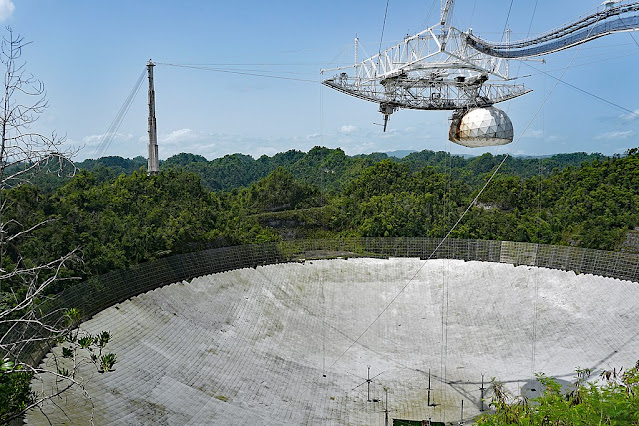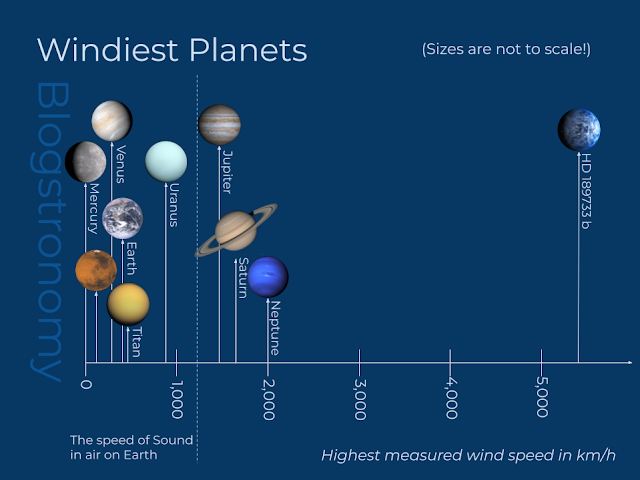Should SETI Shut Down?
"SETI have been scanning the skies for the past 40 odd years and come up with nothing. Do you think it makes more sense to shut down the facility and concentrate on private space travel or on science?" - Question posed by Peter.
First off...
A bit about SETI

|
| Arecibo Radiotelescopio SJU 06 2019 7472, Mariordo (CC BY-SA 4.0), via Wikimedia Commons |
SETI stands for Search for Extra- Terrestrial Intelligence. The institute was set up in 1984 and began operations on February 1st 1985 (which means it's been going for 20-odd rather than 40-odd years, as stated by Peter in the question, although the origins of SETI do hail from earlier times, notably 1974's Arecibo message), and is a non-profit private organisation whose mission is "to explore, understand and explain the origin, nature and prevalence of life in the universe."
Now for the question...
Should they close down and do something else?
My first thought when I read this question was along the lines of "they're a private organisation so they can do what they like with the money they raise," but I realise that's not exactly helpful. So I won't say that.
I think the issue is that, for an institute that calls itself the Search for Extra- Terrestrial Intelligence, the fact that they haven't found any evidence of extraterrestrial intelligence means that they've wasted twenty-six years of funding and expertise. I disagree with this standpoint, mainly from the point of view that SETI's research and developments, whilst not actually finding evidence of life in the universe beyond Earth, have played a greater role in making advances in related fields of astronomy. I'll offer a handful of examples:
- Between 1997 and 2007, SETI was instrumental in forming ideas, raising funds and commissioning the Allen Telescope Array (so named for the funding source for technology development and the first phase of construction, Paul Allen (co-founder of Microsoft)), which is being used for SETI purposes and also radio astronomy observations in conjunction with the Radio Astronomy Lab of the University of California Berkeley.
- SETI's interest and research into the factors involved in the Drake Equation have implications for our wider understanding of the universe around is. Such factors include the rate of star formation in the galaxy (hence a greater understanding of the factors and conditions that affect star formation).
- The SETI@home project, which is designed to exploit thousands of hours of unused processor time on home computers and put them to good use analysing data from SETI's radio telescopes, has pushed forward research into the field of grid-computing, and now your home computer can be utilised as a processing tool for various scientific projects in fields as diverse as astronomy, cryptography, climate science and artificial intelligence.
- Various astrobiology projects and experiments have contributed to developing our understanding of life processes and how they may implement themselves on other worlds, as well as a deeper understanding of areas of astronomy such as planet formation and various aspects of the evolution of stars and galaxies.
So, in short, I don't think that SETI should close down their projects and concentrate on developing private space travel: that would be like Apple stopping selling phones and instead starting to develop cars[1]- it's a different field, with different expertise required. As for 'concentrating on science', well... that's what they do already!
Searching for extraterrestrial intelligence isn't simply about staring through a telescope and hoping a little green man waves back - it goes much, much deeper than that. Before we can find out if there is any life out there, we need to know what signs it might give off, and whereabouts it might turn up so that we can continue to narrow the search. This requires developing our understanding of the processes behind the development of life, and the conditions that bring them about, and the conditions that allow those conditions to come into effect... It's all research that leads into areas of astronomy beyond the search for life elsewhere in the universe, and even beyond astronomy into other areas of science.
So I say keep up the good work, folks!
Footnotes:
- It appears I may have spoken too soon... [back]



Comments
Post a Comment